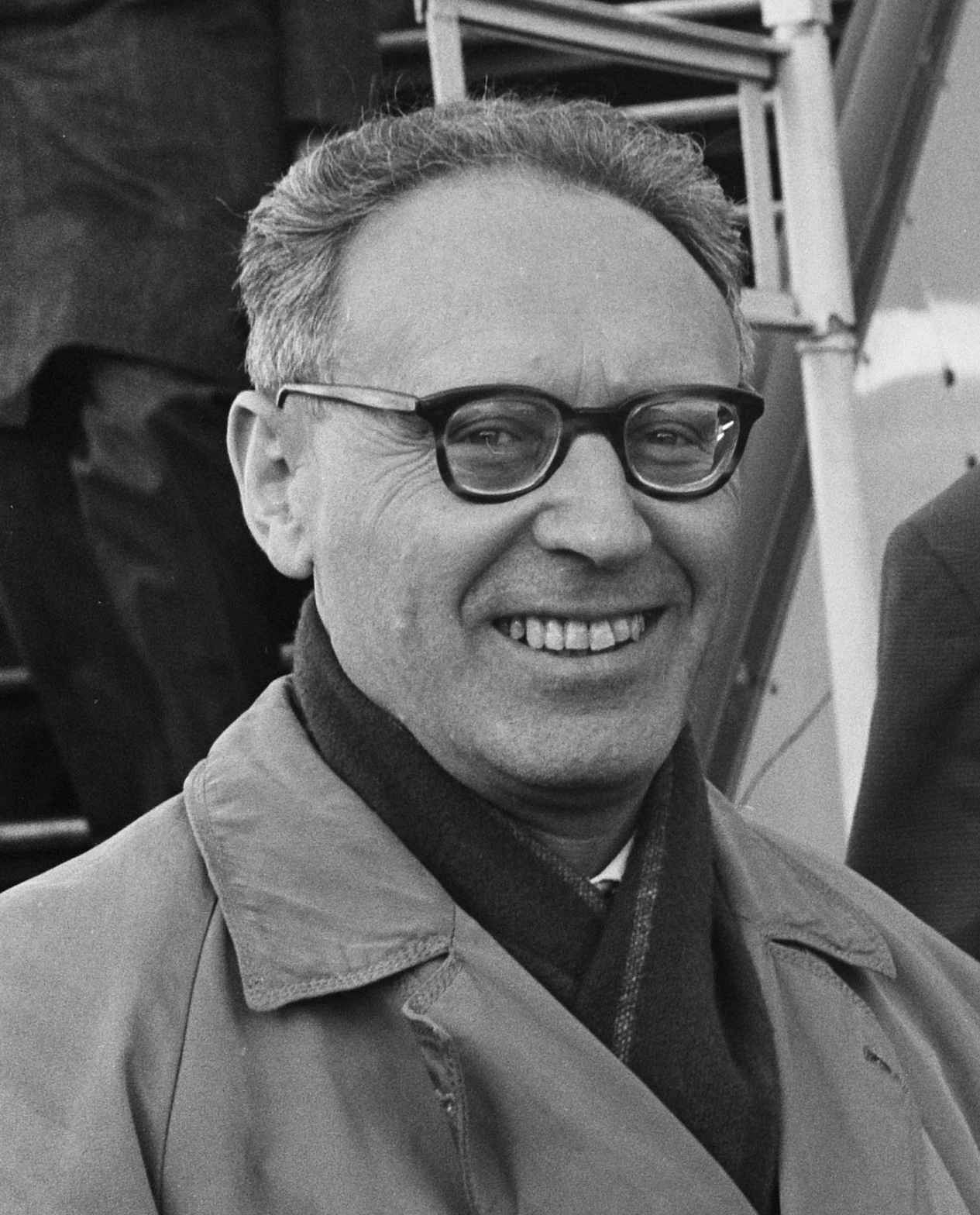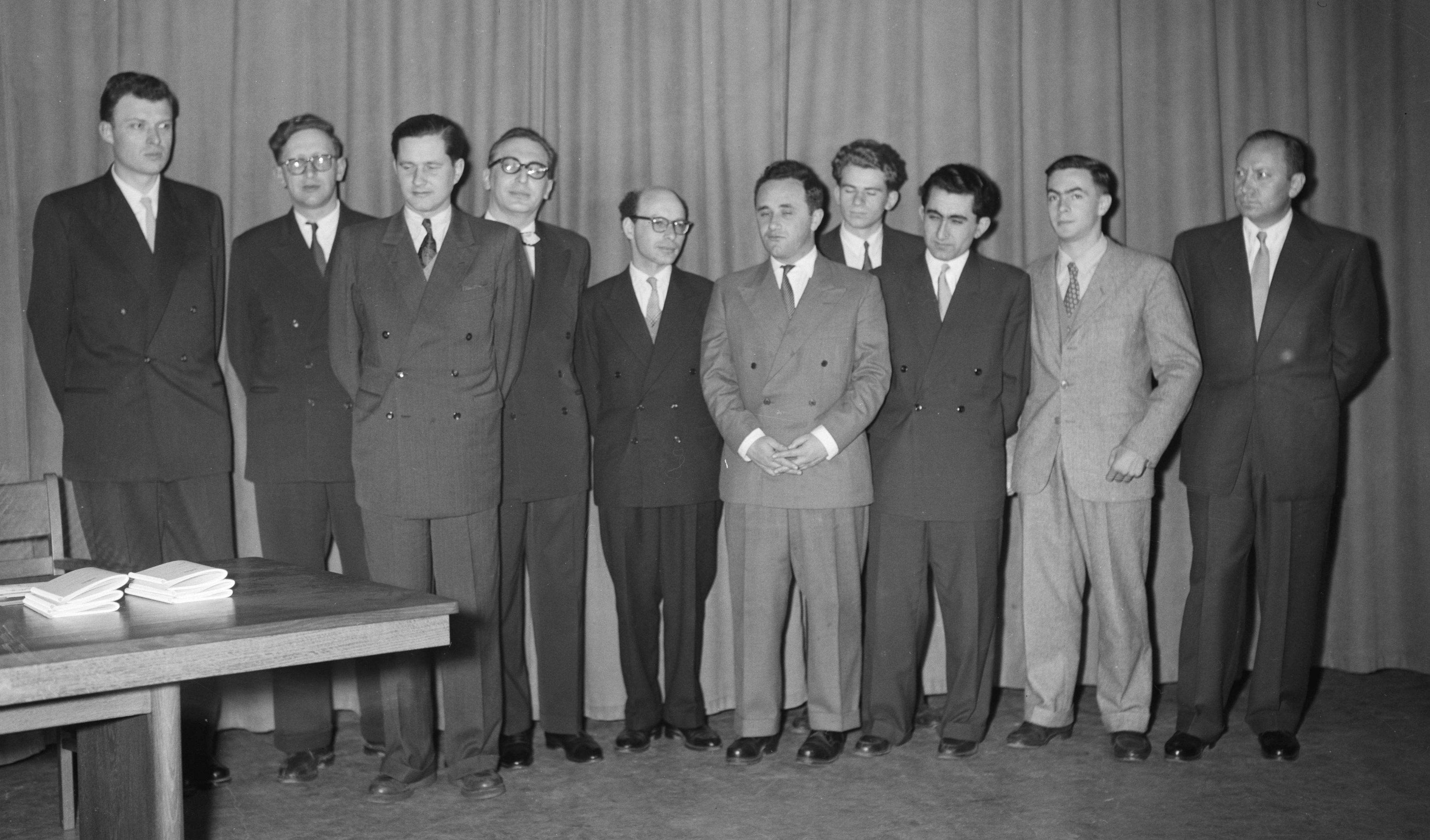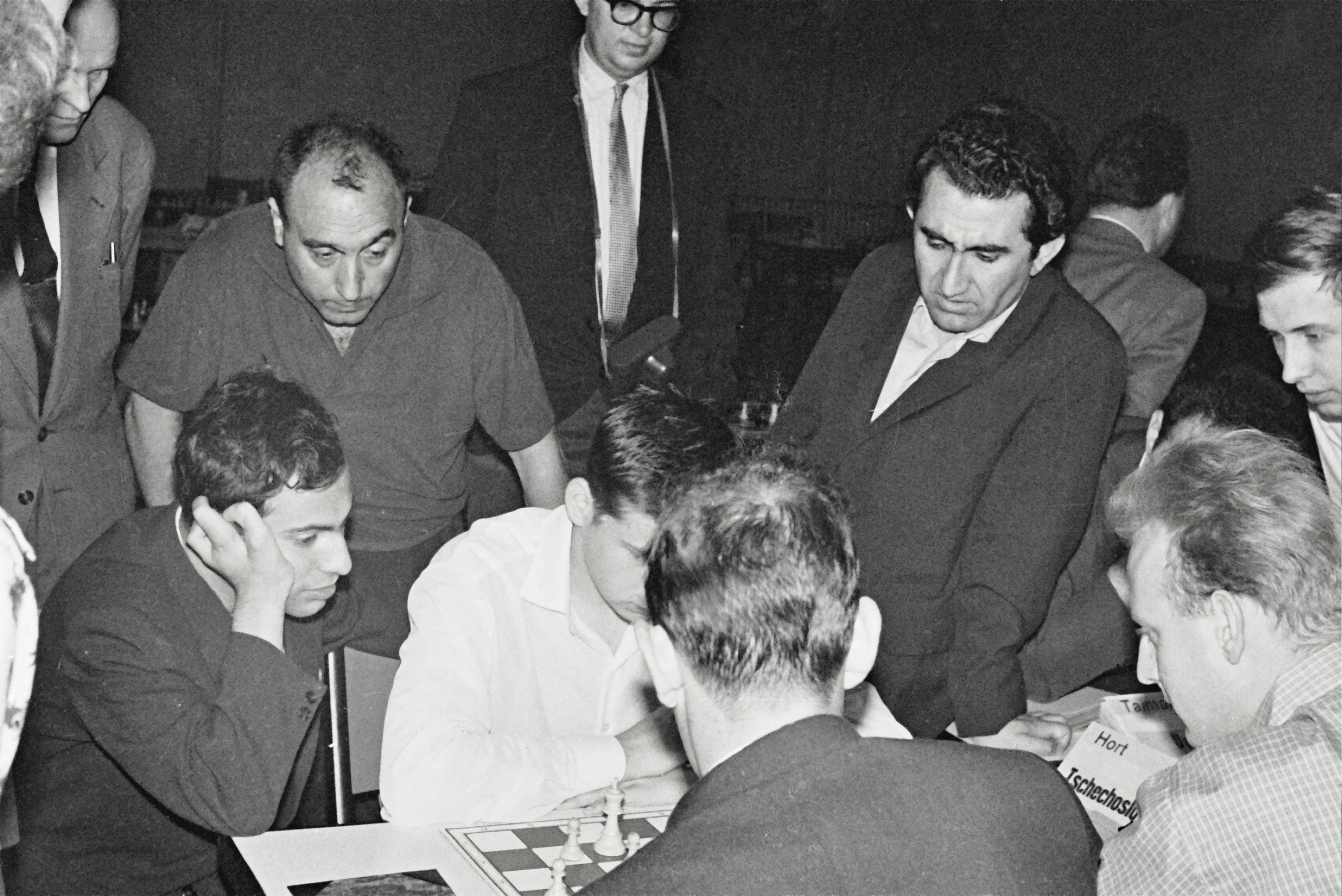|
Interzonal
Interzonal chess tournaments were tournaments organized by the World Chess Federation FIDE from the 1950s to the 1990s. They were a stage in the triennial World Chess Championship cycle and were held after the Zonal tournaments, and before the Candidates Tournament. Since 2005, the Chess World Cup has filled a similar role. Zonal tournaments In the first year of the cycle, every FIDE member nation would hold a national championship, with the top players qualifying for the Zonal tournament. The world was divided into distinct zones, with the USSR, United States and Canada each being designated a zone, thus qualifiers from these three zones went directly to the Interzonal. Smaller countries would be grouped into a zone with many countries. For example, all of South America and Central America combined originally formed one zone. Interzonal tournaments The top players in each Zonal tournament would meet in the Interzonal tournament, which would typically have between 20 and ... [...More Info...] [...Related Items...] OR: [Wikipedia] [Google] [Baidu] |
World Chess Championship 1963
At the World Chess Championship 1963, Tigran Petrosian narrowly qualified to challenge Mikhail Botvinnik for the World Chess Championship, and then won the match to become the ninth World Chess Champion. The cycle is particularly remembered for the controversy surrounding the Candidates' Tournament at Curaçao in 1962, which resulted in FIDE changing the format of the Candidates Tournament to a series of knockout matches. Structure The world championship cycle was under the jurisdiction of FIDE, the World Chess Federation, which set the structure for the fifth world championship series at the 1959 FIDE Congress in Luxembourg.Wade, pp. 54–55 The cycle began with the zonal tournaments of 1960. The top finishers in the zonals met at the Interzonal, with the top six players from the Interzonal qualifying for the Candidates' Tournament. They were then joined by Mikhail Tal (loser of the last World Championship match in 1961) and Paul Keres (runner-up at the 1959 Candidates) in ... [...More Info...] [...Related Items...] OR: [Wikipedia] [Google] [Baidu] |
Candidates Tournament
The Candidates Tournament (or in some periods Candidates Matches) is a chess tournament organized by FIDE, chess's international governing body, since 1950, as the final contest to determine the challenger for the World Chess Championship. The winner of the Candidates earns the right to a match for the World Championship against the incumbent World Champion. Before 1993 it was contested as a triennial tournament; almost always held every third year from 1950 to 1992 inclusive. After the split of the World Championship in the early 1990s, the cycles were disrupted, even after the reunification of the titles in 2006. Since 2013 it has settled into a 2-year cycle: qualification for Candidates during the odd numbered year, Candidates played early in the even numbered year, and the World Championship match played late in the even numbered year. The latter half of the 2020 Candidates Tournament got suspended due to the COVID-19 pandemic and was only played in April 2021. [...More Info...] [...Related Items...] OR: [Wikipedia] [Google] [Baidu] |
Mikhail Tal
Mikhail Nekhemyevich Tal; rus, Михаил Нехемьевич Таль, ''Mikhail Nekhem'yevich Tal' '', ; sometimes transliterated ''Mihails Tals'' or ''Mihail Tal'' (9 November 1936 – 28 June 1992) was a Soviet-Latvian chess player and the eighth World Chess Champion. He is considered a creative genius within the game of chess and one of its best ever players. Tal played in an attacking and daring combinatorial style. His play was known above all for improvisation and unpredictability. It has been said that "Every game for him was as inimitable and invaluable as a poem". His nickname was "Misha", a diminutive for Mikhail, and he earned the nickname "The Magician from Riga". Both ''The Mammoth Book of the World's Greatest Chess Games'' and ''Modern Chess Brilliancies'' include more games by Tal than any other player. He also held the record for the longest unbeaten streak in competitive chess history with 95 games (46 wins, 49 draws) between 23 October 1973 and 16 O ... [...More Info...] [...Related Items...] OR: [Wikipedia] [Google] [Baidu] |
World Chess Championship
The World Chess Championship is played to determine the world champion in chess. The current world champion is Magnus Carlsen of Norway, who has held the title since 2013. The first event recognized as a world championship was the World Chess Championship 1886, 1886 match between the two leading players in the world, Wilhelm Steinitz and Johannes Zukertort. Steinitz won, becoming the first world champion. From 1886 to 1946, the champion set the terms, requiring any challenger to raise a sizable stake and defeat the champion in a match in order to become the new world champion. Following the death of reigning world champion Alexander Alekhine in 1946, FIDE (the International Chess Federation) took over administration of the World Championship, beginning with the World Chess Championship 1948, 1948 World Championship tournament. From 1948 to 1993, FIDE organized a set of tournaments to choose a new challenger every three years. World Chess Championship 1993, In 1993, reigning cha ... [...More Info...] [...Related Items...] OR: [Wikipedia] [Google] [Baidu] |
FIDE World Chess Championship 1996
The FIDE World Chess Championship 1996 was a chess tournament held by FIDE to determine the World Chess Champion. Background At the time the World Chess Champion title was split. In 1993, Nigel Short had qualified via FIDE's usual format to meet champion Garry Kasparov in a championship match. However, Kasparov and Short broke with FIDE and played under the auspices of a new organization which they had organized, the Professional Chess Association (PCA). Kasparov won this match to remain champion. With its two top players withdrawn, FIDE awarded the two slots in its 1993 championship match to Anatoly Karpov and Jan Timman, both of whom had been defeated in earlier qualification rounds by Short. Karpov won the match to become the FIDE World Champion. The FIDE World Chess Championship 1996 was FIDE's first since the 1993 split. Meanwhile, the PCA held its Classical World Chess Championship 1995, in which Kasparov defeated Viswanathan Anand to retain his title. Many of the same pl ... [...More Info...] [...Related Items...] OR: [Wikipedia] [Google] [Baidu] |
FIDE
The International Chess Federation or World Chess Federation, commonly referred to by its French acronym FIDE ( Fédération Internationale des Échecs), is an international organization based in Switzerland that connects the various national chess federations and acts as the governing body of international chess competition. FIDE was founded in Paris, France, on July 20, 1924.World Chess Federation FIDE (April 8, 2009). Retrieved on 2013-07-28. Its motto is ''Gens una sumus'', Latin for "We are one Family". In 1999, FIDE was recognized by the (IOC). As of May 2022, there are 200 [...More Info...] [...Related Items...] OR: [Wikipedia] [Google] [Baidu] |
FIDE World Chess Championships 1998-2004
The International Chess Federation or World Chess Federation, commonly referred to by its French acronym FIDE ( Fédération Internationale des Échecs), is an international organization based in Switzerland that connects the various national chess federations and acts as the governing body of international chess competition. FIDE was founded in Paris, France, on July 20, 1924.World Chess Federation FIDE (April 8, 2009). Retrieved on 2013-07-28. Its motto is ''Gens una sumus'', Latin for "We are one Family". In 1999, FIDE was recognized by the (IOC). As of May 2022, there are 200 [...More Info...] [...Related Items...] OR: [Wikipedia] [Google] [Baidu] |
Tigran Petrosian
Tigran Vartanovich Petrosian (, ; 17 June 1929 – 13 August 1984) was a Soviet-Armenian chess grandmaster, and World Chess Champion from 1963 to 1969. He was nicknamed "Iron Tigran" due to his almost-impenetrable defensive playing style, which emphasized safety above all else. Petrosian is often credited with popularizing chess in Armenia. Petrosian was a candidate for the World Chess Championship on eight occasions ( 1953, 1956, 1959, 1962, 1971 * The year 1971 had three partial solar eclipses ( February 25, July 22 and August 20) and two total lunar eclipses (February 10, and August 6). The world population increased by 2.1% this year, the highest increase in history. Events Ja ..., 1974, 1977 and 1980). He won the World Championship in 1963 (against Mikhail Botvinnik), successfully defended it in 1966 (against Boris Spassky), and lost it to Spassky in 1969. Thus he was the defending World Champion or a World Championship Candidate in ten consecut ... [...More Info...] [...Related Items...] OR: [Wikipedia] [Google] [Baidu] |
Paul Keres
Paul Keres (; 7 January 1916 – 5 June 1975) was an Estonian chess grandmaster and chess writer. He was among the world's top players from the mid-1930s to the mid-1960s, and narrowly missed a chance at a World Chess Championship match on five occasions. As Estonia was repeatedly invaded and occupied during World War II, Keres was forced by the circumstances to represent the former Soviet Union (1940–41, 1944–75) and Nazi Germany (1941–44) in international tournaments. Keres won the AVRO 1938 chess tournament, which led to negotiations for a title match against the reigning World Champion Alexander Alekhine, but the match never took place due to the outbreak of World War II in 1939. Keres was runner-up in the Candidates Tournament on four consecutive occasions in 1953–1962. Due to these and other strong results, many chess historians consider Keres one of the greatest players in history, and the strongest player never to become world champion. " Super grandmaster" is a ... [...More Info...] [...Related Items...] OR: [Wikipedia] [Google] [Baidu] |
Mikhail Botvinnik
Mikhail Moiseyevich Botvinnik, ( – May 5, 1995) was a Soviet and Russian chess grandmaster. The sixth World Chess Champion, he also worked as an electrical engineer and computer scientist and was a pioneer in computer chess. Botvinnik was the first world-class player to develop within the Soviet Union. He also played a major role in the organization of chess, making a significant contribution to the design of the World Chess Championship system after World War II and becoming a leading member of the coaching system that enabled the Soviet Union to dominate top-class chess during that time. His pupils include World Champions Anatoly Karpov, Garry Kasparov and Vladimir Kramnik. Early years Botvinnik was born on August 17, 1911, in what was then Kuokkala, Vyborg Governorate, Grand Duchy of Finland, now the district of Repino in Saint Petersburg. His parents were Russian Jews; his father, Moisei Botvinnik (1878–1931), was a dental technician and his mother, Shifra (Se ... [...More Info...] [...Related Items...] OR: [Wikipedia] [Google] [Baidu] |
Professional Chess Association
The Professional Chess Association (PCA), which existed between 1993 and 1996, was a rival organisation to FIDE, the international chess organization. The PCA was created in 1993 by Garry Kasparov and Nigel Short for the marketing and organization of their chess world championship. Formation In 1993, Nigel Short won the Candidates Tournament and so qualified as challenger to Garry Kasparov for the World Chess Championship. By FIDE regulation, the bids for where the World Championship final is played should have been decided by three parties – FIDE, the World Champion (Kasparov) and the Challenger (Short). According to Kasparov and Short, FIDE president Florencio Campomanes broke these rules by simply announcing the venue of the winning bid as being Manchester. FIDE derived a substantial part of its income from the prize fund of the World Championship. In response to this, Kasparov and Short formed the PCA, appointing Bob Rice as Commissioner. They played their world championship ... [...More Info...] [...Related Items...] OR: [Wikipedia] [Google] [Baidu] |
Canada
Canada is a country in North America. Its ten provinces and three territories extend from the Atlantic Ocean to the Pacific Ocean and northward into the Arctic Ocean, covering over , making it the world's second-largest country by total area. Its southern and western border with the United States, stretching , is the world's longest binational land border. Canada's capital is Ottawa, and its three largest metropolitan areas are Toronto, Montreal, and Vancouver. Indigenous peoples have continuously inhabited what is now Canada for thousands of years. Beginning in the 16th century, British and French expeditions explored and later settled along the Atlantic coast. As a consequence of various armed conflicts, France ceded nearly all of its colonies in North America in 1763. In 1867, with the union of three British North American colonies through Confederation, Canada was formed as a federal dominion of four provinces. This began an accretion of provinces an ... [...More Info...] [...Related Items...] OR: [Wikipedia] [Google] [Baidu] |


.jpg)



.jpg)